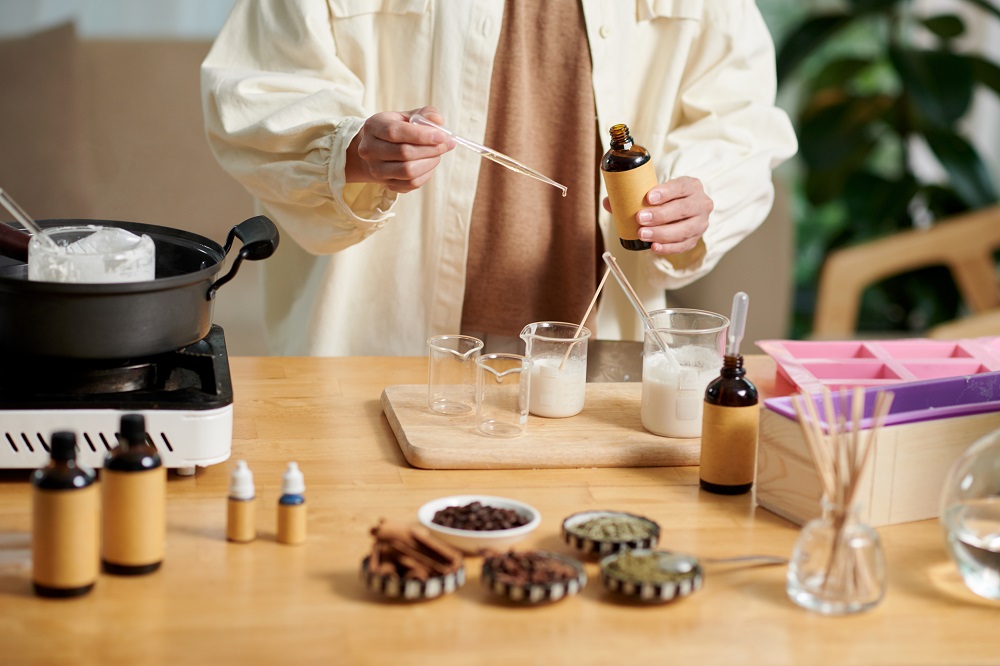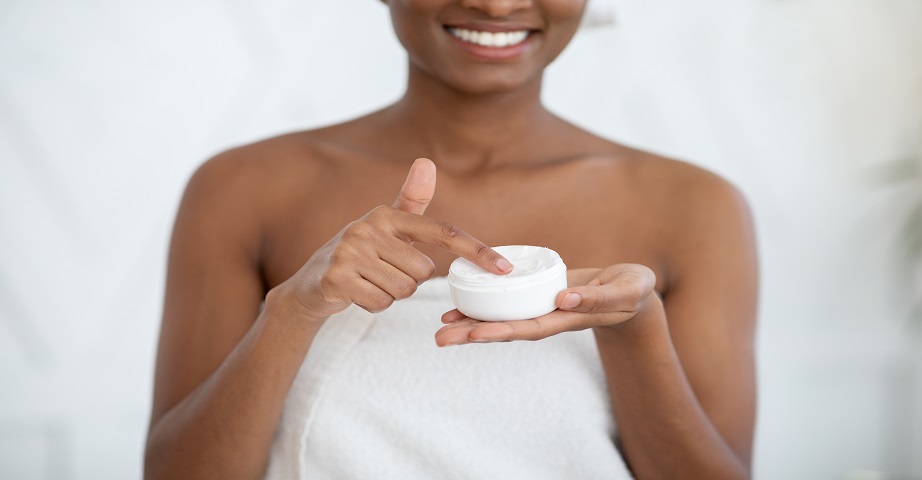Palmitic acid - properties and application

Palmitic acid is an organic chemical compound, belonging to the group of saturated fatty acids. It is a compound current in nature, which can be found in both animal fats and vegetable oils. It is the basic component of soaps, and additionally allows creating an emulsion. How does palmitic acid affect the human body? Is it safe for health? What are its properties and application?
Summary
What is palmitic acid?
Palmitic acid (hexadecanoic acid) is an organic chemical compound with the formula C15H31COOH, which belongs to the group of saturated fatty acids. It is formed from 16 carbon atoms that are combined into one long chain. It does not dissociate, and between carbon atoms it has only single bonds.
It is the most common fatty acid in nature, which is most often found in the form of glycerin esters. It can be found in vegetable fats, such as palm oil. Its rich source are also fats of animal origin - the palmitic acid is found, among others, in tallow or lard. In addition, the substance is also present in milk and dairy products.
It is an organic compound that does not dissolve in water, but it dissolves well in ethyl alcohol. Moreover, the palmitic acid is present in a constant state of matter. It is a white substance that melts at temperatures above 60 degrees Celsius. How is the palmitic acid obtained? It is extracted from fats by saponification, and the whole process can take place synthetically or taking into account the hydrolysis of fats.
Palmitic acid - properties
The palmitic acid can be involved in the regulation of hormone secretion, as well as in the transmission of signals between body cells. It can also support the proper functioning of the immune system and participate in immune reactions. The positive effect of the compound on the body can be observed using small doses of the substance.
In turn, high intake of the palmitic acid in the daily diet can negatively affect the human body, contributing to an increase in the concentration of total cholesterol in the blood serum, as well as to increase its LDL fraction. This, on the other hand, may increase the risk of deposits in blood vessels, as well as promote the formation of atherosclerotic plaques and increase the risk of atherosclerosis and cardiovascular diseases, such as. hypertension or ischaemic heart disease. In addition, excessive supply of saturated fatty acids in the daily menu, including palmitic acid, may cause a decrease in immunity, increase the risk of developing obesity and digestive disorders. Thus, nutrition specialists and doctors recommend replacing saturated fatty acids in the diet with essential unsaturated fatty acids, such as polyunsaturated fatty acids and monounsaturated fatty acids, whose consumption can have a much more beneficial effect on human health and positively affect the functioning of the body.
Although the palmitic acid is not a particularly desirable ingredient in the diet, the compound is appreciated in cosmetics, where it is used primarily as an emulsifier, which facilitates the achievement of the desired consistency of the product. In addition, the substance used in skin care products plays the role of an emollient, creating an occlusive layer on the surface, a kind of protective filter that prevents excessive evaporation of water from the epidermis. Thus, palmitic acid present in cosmetics prevents dryness of the skin, and what's more, it cares for its hydration and smoothes the skin. The compound can also have a moisturizing and softening effect. However, it is worth remembering that palmitic acid used in a pure state on the skin may promote the formation of blackheads.
The palmitic acid is a desirable component of preparations intended for the care of dry and dehydrated skin. The substance can also be found in products intended for hair care - it protects them from excessive water loss and drying, adding softness and radiance to them.

Where does palmitic acid occur? - Application of the compound
The palmitic acid is widely used in various industries. Firstly, it is used in the production of soap - palmitic acid salts, such as sodium palmitate and potassium palmitate, are the basic ingredients of soaps.
Moreover, the compound is used in the creation of other cosmetics, such as body lotions, shampoos or hair conditioners, as well as creams and lotions for care. The palmitic acid is also used in the production of auxiliary agents for the textile industry or lubricating oils.
Safety of use the palmitic acid
It is not recommended to use the palmitic acid in significant amounts as a component of the daily diet - because it is a saturated fatty acid, it may increase the risk of developing civilization diseases, such as cardiovascular diseases or obesity.
However, there are no contraindications to use the compound in other areas of life. According to the results of scientific research, the palmitic acid as a component of cosmetics is a safe substance that should not contribute to the occurrence of undesirable symptoms and ailments.

